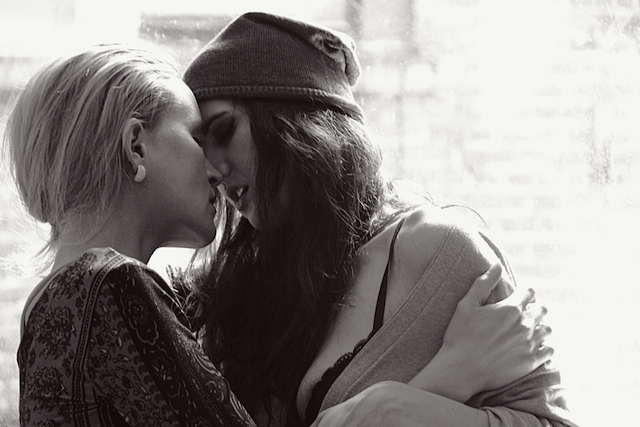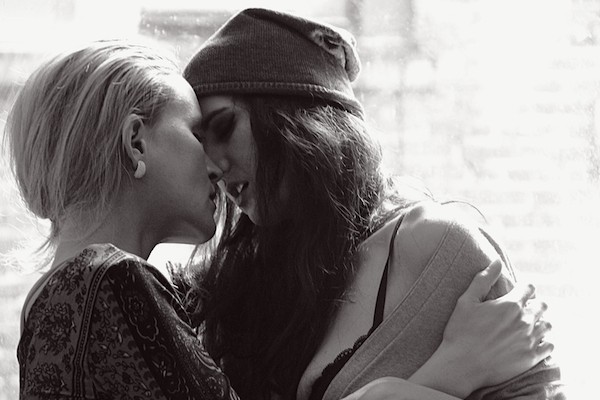
Get ready to do some emotional heavy-lifting with Lover’s Game, a film by Danielle Earle, who is also a director and producer of the web series, Brooklyn Is In Love. The film, Lover’s Game, tells a story about two women with somewhat different backgrounds who fall in love. They define the love they share in different ways, which lays the foundation for a tumultuous ride.
Anabella is a professional businesswoman who owns an art studio and lives with her husband in New York City. Gillian is a presumably younger artist who lures Anabella away from her husband and ultimately seduces her.
By chance, Anabella trips and skins her palm on the sidewalk outside of Gillian’s apartment. Gillian witnesses the accident, offers to clean Anabella’s hand, and invites her upstairs where she discovers Gillian’s artwork.
Here’s a little bit of background on the premise: Anabella and her husband, Vincent, have had issues getting pregnant. In turn, Vincent consumes himself with work because his professional success is something he feels he can provide for Anabella. Shortly after their first run-in, Anabella happens upon Gillian in a park and stops to say hello. Anabella offers to show Gillian’s work in her gallery which sets them up to see each other in the future. Slightly neglected, disappointed with her failed efforts getting pregnant, and intrigued by Gillian’s creativity, Anabella has an affair with Gillian.
While I was looking forward to seeing a lesbian film, I realized that Lover’s Game is another film to add to the insurmountable pile of “lesbian films” that feature a woman who’s just left a heterosexual relationship, or who’s going from a lesbian fling back to a heterosexual relationship.
Can we just have a born this way, still this way, lesbian film, please?
To the film’s credit, Anabella’s relationship with Gillian is more than just sexual exploration—she falls in love with Gillian. Anabella says she feels like she’s woken up. But there were two ways this film could have ended, and one option would have made an entirely different statement for what it means to be a lesbian woman. As a lesbian, I don’t care to watch a straight woman have an epiphany about her temporary sexual fluidity only to go back to her husband. It’s as though Gillian is a cute puppy Anabella plays with until she’s able to get pregnant.
Is Anabella unable to leave Vincent because it would hurt his career if news went public of his wife leaving him for another woman? Is it because she’s not strong enough to face change and some likely societal discomfort? Earle weighs in on this question: “I think that she couldn’t grasp the realization that she is in love with Gillian, and she genuinely cares about her, and that the society around her couldn’t accept it. I do feel that she loves Gillian, and that due to uncertain circumstances, Annabella didn’t want Gillian to be hurt again.”
Anabella loves Vincent, but she loves Gillian to such a degree that she endangers her marriage. She’s in liberal, New York City, it’s 2014, and she is a self-sufficient business woman. Why does she end up with Vincent?
Content aside, there were countless scenes that dragged on for so long that I stopped experiencing the film and wondered instead how long it would take for something to happen. There were numerous montages of iconic New York scenery when one would have set the scene. The audio was inconsistent to a distracting degree, the acting was so-so, and most of the time I wasn’t buying it.
It’s not a “win” just to see girls making out. If it’s going to be called a lesbian film, give me some solid, unwavering, mind set behind their sexuality.
Ultimately, the film tells a story that I’m sure many other women have experienced, and shared experiences are worth something. Earle wants to send the message “that there is hope in the darkness we face in love.” This film may not have been my cup of tea, but if you personally relate to their experience, you may want to check it out!


